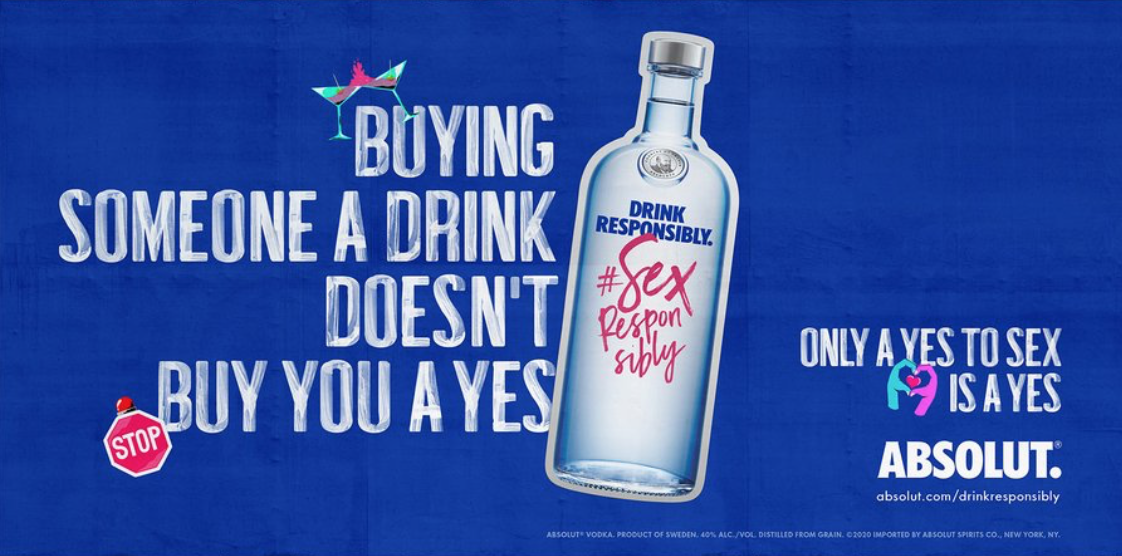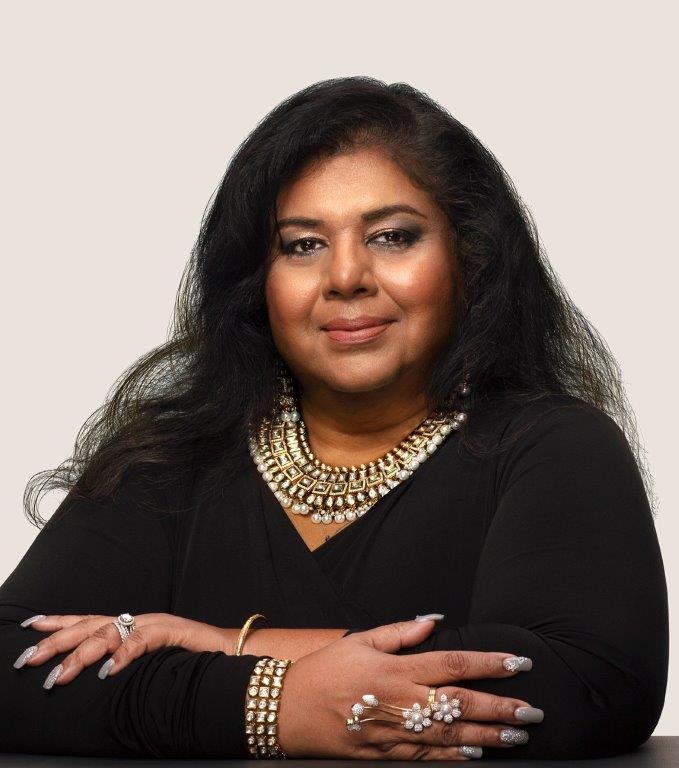Each month, RAINN highlights a member of its National Leadership Council (NLC). The NLC is a group of dedicated individuals who have shown their commitment to RAINN’s mission of supporting survivors and ending sexual violence. This month RAINN’s Christy Rozek checked in with survivor and Chairman and CEO of Pernod Ricard North America Ann Mukherjee.
You partnered with RAINN on Absolut Vodka’s #SexResponsibly consent campaign earlier this year. How did this get started?
 I’ve had a difficult relationship with alcohol in my life. I’ve been sexually assaulted by those under the influence and those who weren’t—in either case, no means no. I’ve always wanted to figure out how to be an agent of change to figure out how to bring my experiences to bear with this issue. Joining Pernod Ricard gave me the opportunity to confront these issues head on.
I’ve had a difficult relationship with alcohol in my life. I’ve been sexually assaulted by those under the influence and those who weren’t—in either case, no means no. I’ve always wanted to figure out how to be an agent of change to figure out how to bring my experiences to bear with this issue. Joining Pernod Ricard gave me the opportunity to confront these issues head on.
We wanted to think about consent and what it means to be drinking responsibly. We should be able to enjoy having a drink with friends without fearing sexual violence. Having a drink never equals consenting to sex.
With the #SexResponsibly campaign, we knew it couldn’t be a one-time thing, it had to be a lasting value we carry forward. There was no better partner we could find than RAINN.
What inspired you to become part of RAINN’s National Leadership Council? What started your interest in this issue?
I went public with my own story of abuse because there are so many people out there who need to know that it’s not just them. It can happen to anyone.
I want them to see me. I want them to see someone who was molested starting at age four, someone who survived a marriage so physically and sexually abusive that it sent me to the hospital, more than once. I want them to know that I am healing every day, and thriving. There is hope.
If I can reach one more person with my story and help them go from victim, to survivor, to hero...that’s what keeps me going.
What do we need to do as a country to prevent sexual violence?
When I was in high school in India and would be walking home, boys on motorcycles would drive up and touch me inappropriately, then drive off before I could do anything. One of them made the mistake of doing this on a bicycle. I chased him down and kicked the shit out of him.
We have to stop labeling and reducing trauma. I’ve had so many people say to me, “It wasn’t that bad.” Are you kidding me? Anyone who inappropriately touches your body is engaging in violence. Period.
I don’t understand why this is tolerated in our society. This notion of normalizing violence as a way of life has got to stop.
Any person who is violated in any way should be able to speak up without being judged or punished. And when I say punished, I mean socially punished. That kind of social punishment where victims are seen as guilty. It’s twisted.
How can we all be better supporters and advocates for survivors in our lives?

Listen, be empathetic. Most people when they hear stories like mine are very uncomfortable acknowledging what happened. If someone comes to you, be a champion of their story, show that you take them seriously. When people want to stay away from the ugliness of this violence and choose to hide from it for their own comfort, it isolates and silences survivors.
I grew up in a close-knit community. One of the people who abused me as a teenager was very close friends with my parents. My mother died when I was in my teens, so I reached out to some of her friends and told them my story. While they sympathized, they said it was most important to maintain normalcy in the community and not confront the perpetrator.
We have to stop prioritizing maintaining appearances over justice. It’s time to break down those walls.
The first time my husband beat me so badly that I was in the hospital, I had a cousin who visited me from out of town. He saw what the rest of my family refused to see, he knew that this was abuse. He was the first person to stand by my side.
The second time my husband put me in the hospital, my cousin flew from London, checked me out of the hospital, and I never went back. He saved my life.
How has your passion for ending sexual violence influenced other areas of your life?
I’ve found so much healing and strength in sharing my story—it’s permeated my life. For so many years, I was ashamed of what happened to me and felt that I was living dual lives—one of a successful career and a loving second marriage, and the other of the shame of abuse. Slowly, I started to bring my whole self to everything I was doing.
I got to a point in my healing where I felt like I had to do something about this. Years ago a friend got me involved in CHETNA, a wonderful organization here in Dallas that serves South Asian people affected by domestic violence.
What is your message to survivors?
Don’t let what happened to you define you. You are not just a survivor, you are a hero. Let it re-create you. You’re not a victim, or a survivor, you are a hero. And the people who help heroes, you are angels.